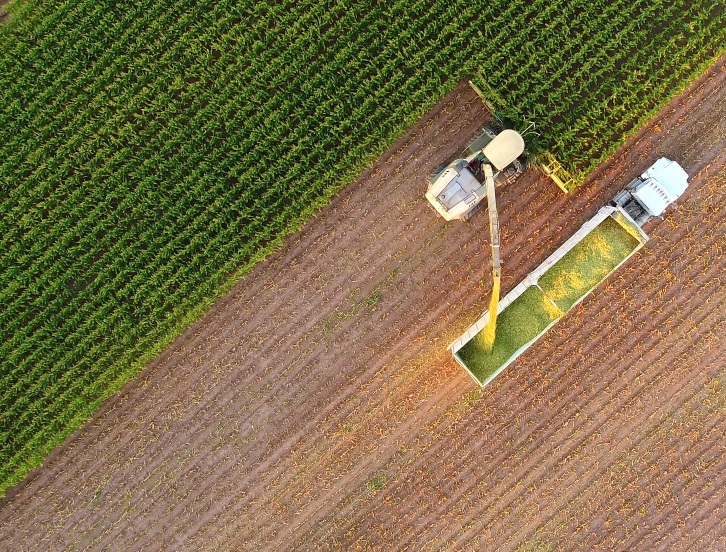Links to external sources may no longer work as intended. The content may not represent the latest thinking in this area or the Society’s current position on the topic.
You and the planet: food

Join our panel in Gateshead to discover how the food we eat affects the natural world.
Chef and broadcaster Hugh Fearnley-Whittingstall hosts a discussion to get to the bottom of your questions about the relationship between our food and our planet.
World food production grew from 1.84 billion tonnes in 1961 to 4.38 billion tonnes in 2007, yet people still go hungry.
How can we feed the world sustainably and equitably while protecting nature? Would eating less red meat make a real difference? What is the future of farming?
Get involved by submitting your question to the panel when reserving a seat online, or come along beforehand to meet researchers from Newcastle University, who will be demonstrating how their work is addressing some of the biggest challenges in our global food system.
This event is part of You and the Planet, a series exploring global environmental issues with world-renowned speakers from science, business, politics and more.
Catch up on the series on YouTube and join the conversation at #YouAndThePlanet.
Speakers
Gordon Conway, Professor of International Development at Imperial College London, is an applied ecologist with a focus on sustainable agricultural development in Africa. He is head of the UK hub of the Malabo-Montpellier Panel, a group of African and European agriculturalists who partner with IFPRI (The International Food Policy Research Institute) in Senegal and the University of Bonn to develop agricultural policy for African governments and NGOs. He also heads a new grant from the Rockefeller Foundation focusing on creating Healthy Diets worldwide. His most recent book is ‘Food for All in Africa’.
Corinna Hawkes is Director of the Centre for Food Policy at City, University of London. Her work aims to support the design and delivery of policies that effectively and equitably improve the quality of diets locally, nationally and internationally. A regular advisor to governments, international agencies and NGOs, her work is concerned with providing solutions to all forms of diet-related ill-health, including obesity, malnutrition and diet-related non-communicable diseases. Between 2014-18, Professor Hawkes was Co-Chair of the Global Nutrition Report, and in 2018 she was appointed Vice-Chair of London’s Child Obesity Taskforce by the Mayor of London. She is also a Distinguished Fellow at The George Institute for Global Health.
Dr Juha-Pekka Pitkänen, Chief Technology Officer and co-founder of Finnish start-up company Solar Foods Ltd. Solar Foods aims to bring to the market a radically new pure protein which is produced without agriculture or requirement for arable land. The process uses a microorganism which is grown in fermenter tanks similar to those in breweries using carbon dioxide, renewable electricity, water and minerals as raw materials. This closed process enables efficient food production regardless of climate, weather or quality of soil. No pesticides or irrigation is needed, avoiding environmental impacts such as greenhouse gas emissions into the atmosphere and water pollution, eutrophication or even water shortage. Prior to co-founding Solar Foods, Dr. Pitkänen was a principal scientist in bioprocess engineering at VTT Technical Research Centre of Finland.
NOTE: This event will be broadcast live on our YouTube channel.
Demonstrations
From 5pm, enjoy a refreshment in the bar area and meet scientists who will be showcasing how their work is addressing some of the biggest challenges facing our global food system.
What is the carbon footprint of your trolley?
Newcastle University
Shopping carts at the ready in this “Supermarket Sweep” style challenge as you attempt to guess the carbon footprint of certain items in your weekly food shop.
The importance of bee-ing healthy
Institute for Agri-food Research and Innovation, Newcastle University
Meet the bumblebees at the forefront of crop and wild plant pollination and discover why scientists are striving to keep them healthy and safe by protecting them from pests and disease.
The future of farming
FIELD research collaboration
Discover your perceptions of the past, present and future of farming and explore the unlimited potential for farming of the future.
We're root-ing for you
Durham Unviersity
Put your root related knowledge to the test and compete for the vegetable expert crown.
Please contact events@royalsociety.org with any questions or queries.
